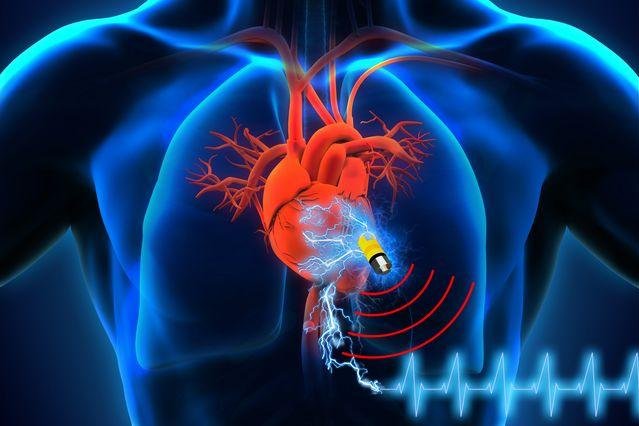Researchers have invested a device that uses ions in bodily fluids to store energy. The energy can be used to power medical devices like a pacemaker. Photo by Islam Mosa/University of Connecticut and Maher El-Kady/UCLA
May 11 (UPI) -- In the future, pacemakers and other medical implant may not need batteries. They will be powered by the human body.
That's the hope of a team of researchers from UCLA and the University of Connecticut, who recently unveiled a so-called biological supercapacitor capable of turning the body's ions into storable energy.
Currently, the battery in a device like a pacemaker must be eventually replaced, which requires another surgery and the accompanying risks. The supercapacitor charges using ions, charged particles, in bodily fluids like urine or blood serum.
The device can be coupled with an energy harvester, which turns the body's kinetic energy into electricity. The supercapacitor is made of graphene and a layer of modified human proteins, which serves as an electrode through which electricity can enter and exit.
"Combining energy harvesters with supercapacitors can provide endless power for lifelong implantable devices that may never need to be replaced," Maher El-Kady, a UCLA postdoctoral researcher, said in a news release.
The supercapacitor has a width of just a single micrometer, which makes it efficient and allows the device to move around within the body without causing damage.
"Unlike batteries that use chemical reactions that involve toxic chemicals and electrolytes to store energy, this new class of biosupercapacitors stores energy by utilizing readily available ions, or charged molecules, from the blood serum," said Islam Mosa, a grad student at Connecticut.
Researchers detailed the promise of their supercapacitor in the journal Advanced Energy Materials.















